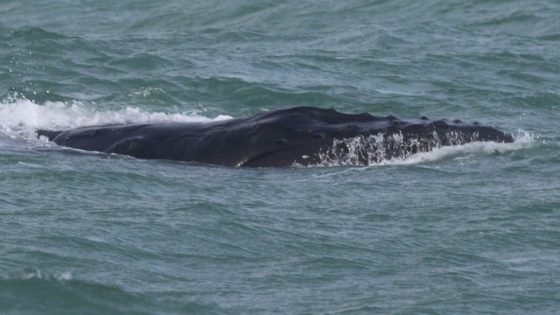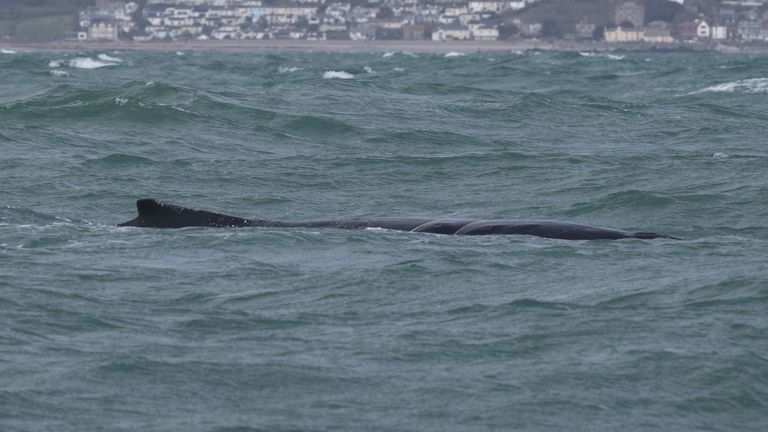Lifeboat volunteers managed to save a rarely seen whale off the coast of Cornwall after it became stuck in lobster pot lines.
The humpback whale was spotted by wildlife-watching tour Marine Discovery Penzance, in Mount’s Bay, near the port of Newlyn, on Sunday morning.
Faced with choppy waters, the tour company’s staff decided to drop off their passengers, before heading back out to tend to the whale.
However, they were warned by experts not to attempt a rescue, because of the risk to their own safety.
Hannah Wilson, co-owner of the company, said they were left feeling “helpless”, with the whale “silent and still” in the water.
However, the Royal National Lifeboat Institution (RNLI), which had a team in the area, was later able to cut the whale free from the ropes.
“It’s incredible what the guy at helm achieved because it was properly rough,” Ms Wilson said.
“By then there was steep short chop, poor visibility, the whale started moving by this point.
“It was very impressive what he did. They cut the crucial rope, and the whale moved off, and that was that.”
According to the tour firm, the whale swam off slowly, followed by the lifeboat crew, and it seemed to be swimming “okay”, despite a “nasty” wound to its tail.
Read more from Sky News:
Humpback whales photographed having sex for first time
Mystery over whales’ singing uncovered by study
The animal was identified as Ivy – a humpback whale seen around the coast of Porthleven for the past four months.
Humpback sightings are rare from UK coasts. They are seen mostly off the Shetland Isles and Hebrides, but increasingly in the northern North Sea.
They come to cooler waters to feast on fish and krill before travelling to tropical seas to give birth – and so are occasionally spotted off the western coasts of the UK as part of their migration.
According to The Wildlife Trusts, if you spot a humpback whale at sea you should maintain a distance of at least 100m.
“If the whale approaches you, maintain a constant speed and allow them to interact on their own terms and leave at will,” according to the organisation.
“If you find a stranded whale (dead or alive), please report it to the relevant authority.”
Source Agencies




